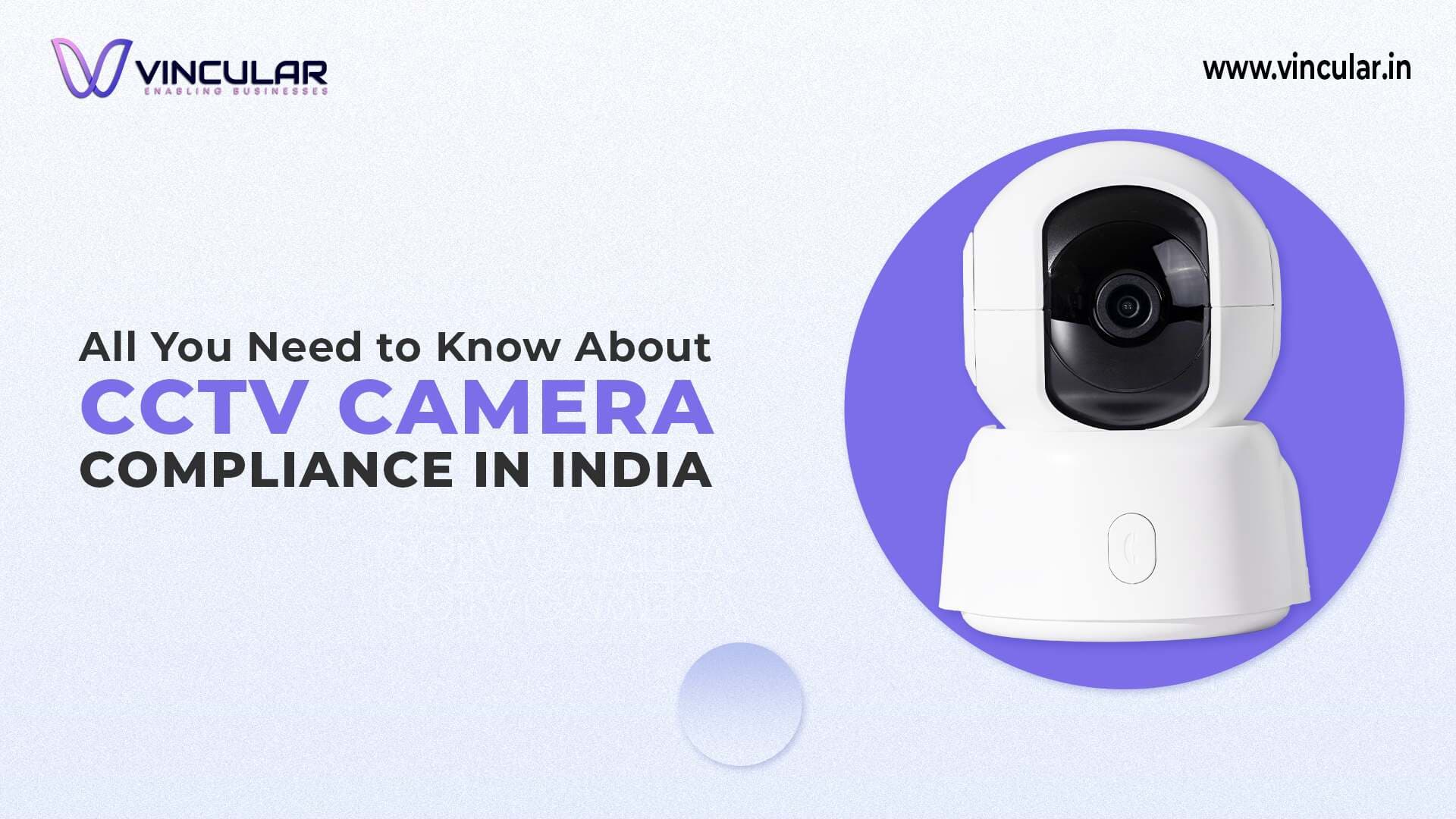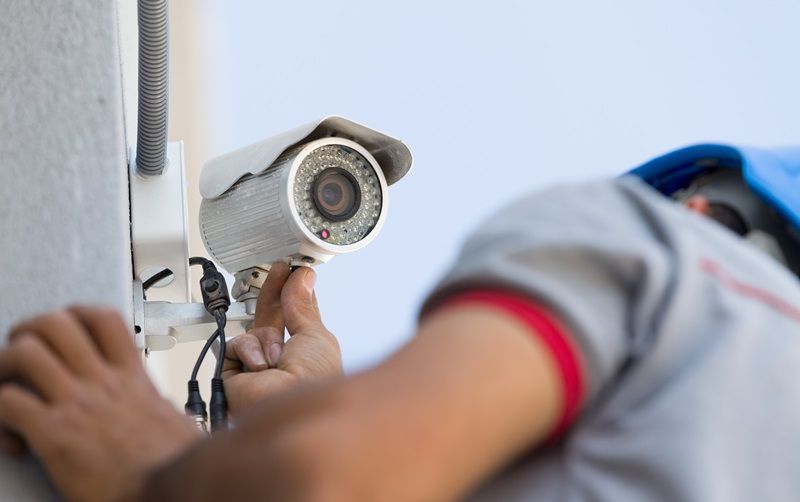
All You Need to Know About CCTV Camera Compliance in India
CCTV camera compliance has been mandatory under the “Electronics and Information Technology Goods (Requirement of Compulsory Registration) Order, 2021. Additionally, adherence to the security requirements outlined in ER 01:2024 has been mandatory since April 9, 2025. After this date, no IP CCTV camera will be acceptable without compliance with the ER
CCTV camera compliance has been mandatory under the “Electronics and Information Technology Goods (Requirement of Compulsory Registration) Order, 2021. Additionally, adherence to the security requirements outlined in ER 01:2024 has been mandatory since April 9, 2025. After this date, no IP CCTV camera will be acceptable without compliance with the ER 01:2024 standard.
Important note: Analogue CCTV cameras are excluded from the scope of ER 01.
Additionally, MeitY has released ‘Series Guidelines for CCTV Products’ to support compliance with Essential Requirements (ERs) under the CRO. These guidelines include specific criteria for product consistency within a series, such as:
- System-on-Chip (SoC) must be the same across all products within a series.
- PCBA layout for all products in the series must remain identical.
- Software/firmware versions and hash values must be identical for all products in the same series.
- Each software version must be tested separately as an independent series if multiple versions are used.
- Each series must have the same hardware bill of materials (BoM).
- As specified in the ER, each software bill of materials (BoM) must contain all firmware, operating system, and database components.
- Certificates must include key details such as pictures of the product or DUT (Design Under Test), model numbers, chipset codes (including country of origin, make, and model numbers), firmware versions, and hashes.
Further details can be found in the official MeitY notification, and additional details are available in the Series Addition notification.
MeitY’s Updated Guidelines for Existing and New CCTV Camera License
Following the compliance deadline extension, on October 22, 2024, MeitY released new guidelines to support both existing license holders and new applicants for CCTV cameras under IS 13252 (Part 1): 2010.
For Existing Licenses
- Compliance Deadline: Existing licensees must comply with the Essential Requirements by April 9, 2025, by submitting the “Apply for Standard Revision/Amendment/Essential Requirement” application, alongside the ER test report.
- Fees: The required fees are ₹30,000 + GST for the primary test report and ₹20,000 + GST for each additional report.
- BIS Compliance Letter: Once compliance is verified, the Bureau of Indian Standards (BIS) will issue a compliance letter listing all conforming models.
- Non-compliance Penalty: Non-compliant models will be removed from the license scope, and failure to comply by the deadline could lead to license cancellation.
For New Applicants
- New applicants must apply in line with IS 13252 (Part 1): 2010 and submit a declaration to implement the ER by April 9, 2025.
- Moreover, after the deadline (April 9, 2025), no License for CCTV cameras shall be granted without compliance with the ‘Essential Requirement(s) for Security of CCTV’ as notified in the QCO.
Change in the Scope of CCTV Camera License
- After April 9, 2025, no inclusion requests for CCTV cameras will be accepted unless they meet the Essential Requirements outlined in the QCO.
- Models that meet these standards may display the message “This CCTV camera complies with Essential Requirement(s) for Security” on their packaging.
For more details, refer to the official notification here.
Then, BIS Issues ER-01 Update for CCTV Cameras in 2025
March 12, 2025, the Ministry issued a notification stating that ER-01 compliance is not required for Analogue CCTV cameras. In continuation of this, the Bureau of Indian Standards (BIS) released a notification on April 1, 2025, providing detailed guidance on the procedure applicants must follow to achieve ER-01 compliance for CCTV cameras. The latest BIS guidelines are outlined below:
For Analogue CCTV Camera Applicants:
- Existing manufacturers of Analogue CCTV cameras must submit a declaration through the “Standard Revision/Amendment/Essential Requirement” module to officially avail the exemption from ER-01 compliance.
- All CCTV cameras covered under IS 13252-1 must specify in the general product description for each model that the camera is of the Analog type.
For Other CCTV Camera Applicants:
- Applicable standard- IS 13252-a (Safety Testing) and ER-01 (security testing), so applicants need to comply with both standards before the deadline.
- After 09th April, non-compliant models will be deleted by BIS from the scope of the license.
Note: Applicants are advised not to combine both types of CCTV cameras in a single Application/Inclusion ID.
For more details, refer to the official notification from here: Non-applicability of Security ER to Analogue CCTV Cameras
Key Points to Remember:
- As of April 9, 2025, the licenses of existing CCTV cameras have been deferred for those who failed to submit an ER application along with the ER:01 test report.
- No request is accepted without an ER Security test report after April 9, 2025.
- Analogue Camera did not require the ER certification.
- The BIS certification of the IP Camera and Analogue Camera test report cannot be submitted together.
- For IP cameras, the applicable standard will be IS 13252 (Part 1) + Essential Requirements for Security of CCTV, while for Analogue cameras, the standard will be IS 13252 (Part 1) only.
- For IP CCTV Certification, the safety test report as per IS 13252-1 and the security test report as per ER 01:2024 must be required.
Background: Why Security Testing for CCTV Cameras in India has Become Mandatory?

With the increasing importance of security in today’s digital world, India has moved decisively to mandate security certification for all CCTV cameras, bringing them under the BIS (Bureau of Indian Standards) framework.
These steps were taken to address concerns over a foreign-made camera potentially transmitting sensitive data to external servers, a risk highlighted for CCTV cameras installed in sensitive areas like government buildings and dockyards. So, to safeguard national security and enhance data protection, the Indian government enforced rigorous security protocols for CCTV cameras and even banned certain foreign-manufactured cameras.
Previously, only government tenders required STQC certification. Now, however, this requirement has been extended to all CCTV cameras sold in India, ensuring safety and security standards across the board. This shift not only safeguards data but also encourages local manufacturing, aligning with the ‘Make in India’ initiative by giving preference to CCTV cameras with Indian-sourced components in government tenders.
CCTV Camera Compliance: Common Challenges May Faced by Manufacturers
While these regulations aim to enhance security, they also bring challenges for CCTV Camera manufacturers. Testing timelines can vary, often taking 4 to 6 weeks, and certifications may take longer depending on the origin of the products.
Manufacturers, especially in India, are urged to begin pre-compliance testing early to prepare for the full regulatory implementation, which is set for April 2025 as mentioned above. This is an important time for the industry to prioritise security, ensuring that India’s digital infrastructure remains protected while supporting local manufacturing.
By complying with these standards, manufacturers can contribute to a safer, more secure digital landscape in India, meeting regulatory requirements while supporting India’s goals for a secure digital future.
Partner with VINCULAR to Achieve STQC Certification for CCTV Camera
Achieving STQC compliance for CCTV cameras can be complex, but VINCULAR makes it simple. With our expertise, we ensure your products meet the latest security and quality standards, keeping you fully compliant with MeitY’s requirements.
From initial testing to final certification, Vincular supports you at every step, helping you streamline the process, reduce risks, and meet deadlines. Partner with us for a smooth and confident path to STQC compliance!
For any support or expert guidance, reach out to us at bis@vincular.in or call us at +91 8088805577.